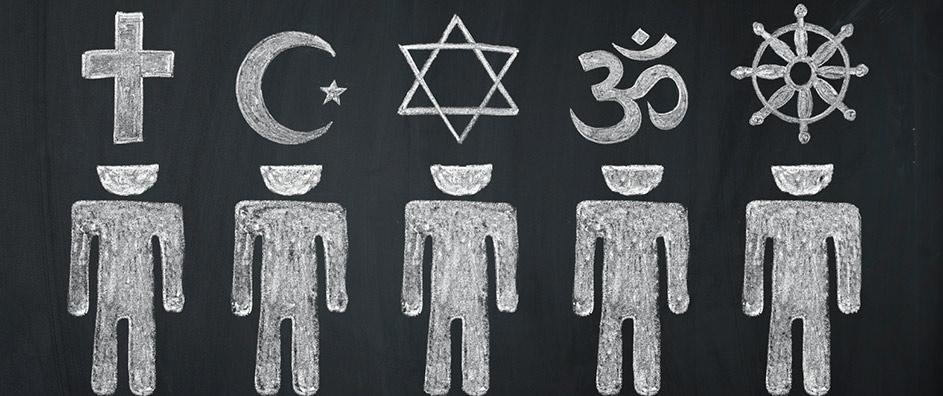The history of spirituality is a kaleidoscopic tapestry, interwoven with diverse traditions, beliefs, and practices that have evolved over millennia. How did humanity arrive at today’s multifaceted understanding of spirituality? This question invites us to delve into the annals of spiritual history, a journey that traverses various cultures, philosophies, and religions. In addressing this compelling query, it is essential to examine the evolution of spirituality through a Bahá’í lens, highlighting both the challenges and insights that arise from this profound exploration.
To commence our inquiry, it is imperative to recognize that spirituality transcends mere religious affiliation, embodying a profound quest for meaning, purpose, and connection with the transcendent. From the dawn of civilization, humans have sought understanding through spiritual practices and beliefs. The converging streams of polytheism, animism, and monotheism can be traced back to ancient cultures, each contributing unique perspectives to the overarching narrative of spirituality.
For instance, ancient Egypt offered a rich tapestry of spiritual practice steeped in mythology, alongside intricate rituals aimed at nurturing the relationship between humans and the divine. Similarly, the Mesopotamians, with their pantheon of gods, articulated cosmic principles that laid the groundwork for subsequent spiritual developments. Such early manifestations of spirituality were not merely systems of belief but were deeply intertwined with social structures, governance, and community identity.
As time progressed, the advent of philosophical thought dramatically altered the landscape of spirituality. The emergence of thinkers such as Socrates, Plato, and later, Aristotle, introduced rationalism and ethics, prompting individuals to question the nature of existence and the divine. This pivotal shift sowed the seeds for a more introspective spirituality, encouraging a personal exploration of the self and the universe. The interrelation of philosophy and spirituality is a vital aspect of the historical narrative, showcasing that the quest for understanding transcends geographic and cultural boundaries.
The monotheistic traditions of Judaism, Christianity, and Islam further revolutionized the spiritual paradigm. Each tradition brought forth unique theological constructs that emphasized the relationship between humanity and a singular, supreme divinity. The prophets and spiritual leaders within these faiths articulated profound truths, articulating spiritual principles that would shape human consciousness for centuries. They posed moral challenges and ethical questions, asking adherents to reflect deeply on their spiritual commitments and the implications of their beliefs.
In tandem with these developments, the Bahá’í Faith emerged in the 19th century as a response to the spiritual needs of a rapidly changing world. Central to Bahá’í teachings is the concept of progressive revelation, suggesting that spiritual truth is not stagnant but evolves over time. This notion poses an intriguing challenge: how do followers reconcile ancient teachings with contemporary insights to forge a spirituality that resonates with modern sensibilities? The Bahá’í perspective encourages an ongoing exploration of truth, recognizing that each religious tradition contributes to the overarching narrative of humanity’s spiritual evolution.
To engage further with this dynamic interplay of ideas, one must contemplate the implications of a global spirituality. The Bahá’í teachings advocate for the unity of all peoples, asserting that spiritual truths transcend cultural and geographical boundaries. This global vision is both exhilarating and daunting. It asks followers to consider: can genuine spiritual synthesis be achieved in an increasingly pluralistic world? The answer lies in collaborative dialogue, mutual respect, and an earnest search for common ground amidst diversity.
Furthermore, Bahá’í teachings extol the virtues of service, compassion, and justice as integral components of spirituality. This principle presupposes an active embodiment of spiritual ideals in daily life. It challenges individuals to transcend introspection and to extend their spiritual pursuits into social action. The juxtaposition of personal spirituality with social responsibility engenders a holistic approach, fostering not only individual transformation but societal evolution as well.
As we traverse through the multifarious threads of spiritual history, it becomes evident that spirituality is an ever-evolving tapestry, reflective of humanity’s collective journey. The transition from ancient spiritual practices to contemporary approaches presents an opportunity to redefine what it means to be spiritual in today’s world. Bahá’ís, along with individuals from various traditions, are tasked with continually exploring the depths of spiritual understanding while addressing contemporary dilemmas.
In conclusion, the inquiry into the history of spirituality, particularly through the Bahá’í lens, reveals a rich and complex narrative that is both celebratory and challenging. The interplay of historical developments, philosophical thought, and religious evolution elucidates the enduring quest for meaning that defines the human experience. The playful question posed at the outset—how did humanity arrive at today’s multifaceted understanding of spirituality?—invites an ongoing exploration, one that recognizes the interplay between past, present, and future in shaping our spiritual landscapes. Indeed, the journey of spirituality is not confined to the annals of history but is a living, breathing pursuit that continues to evolve in the hearts and minds of individuals across the globe, urging us to engage thoughtfully with the profound mysteries of existence.
